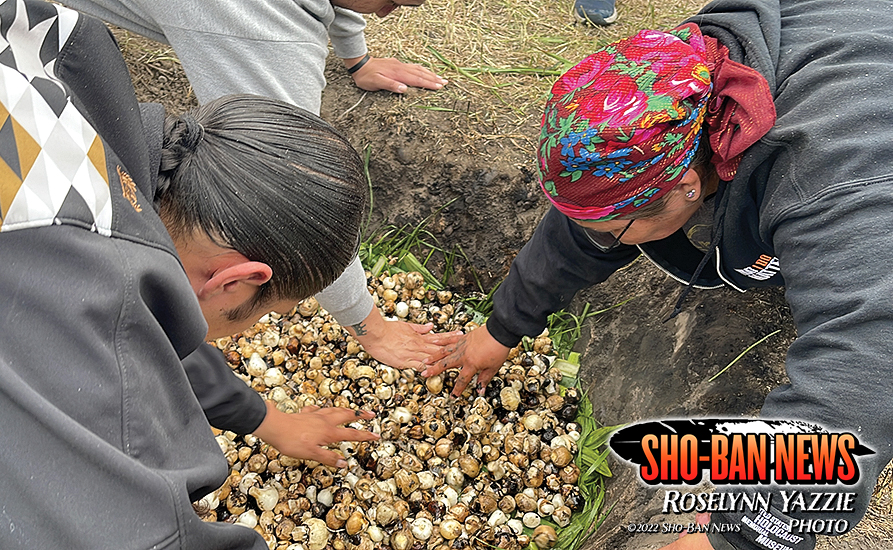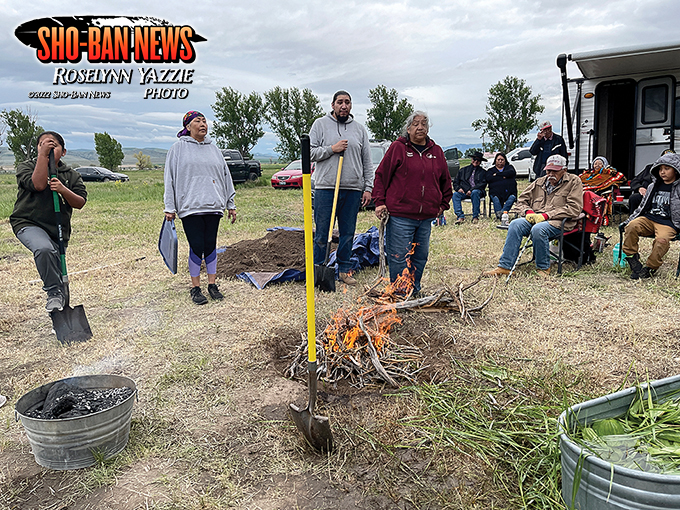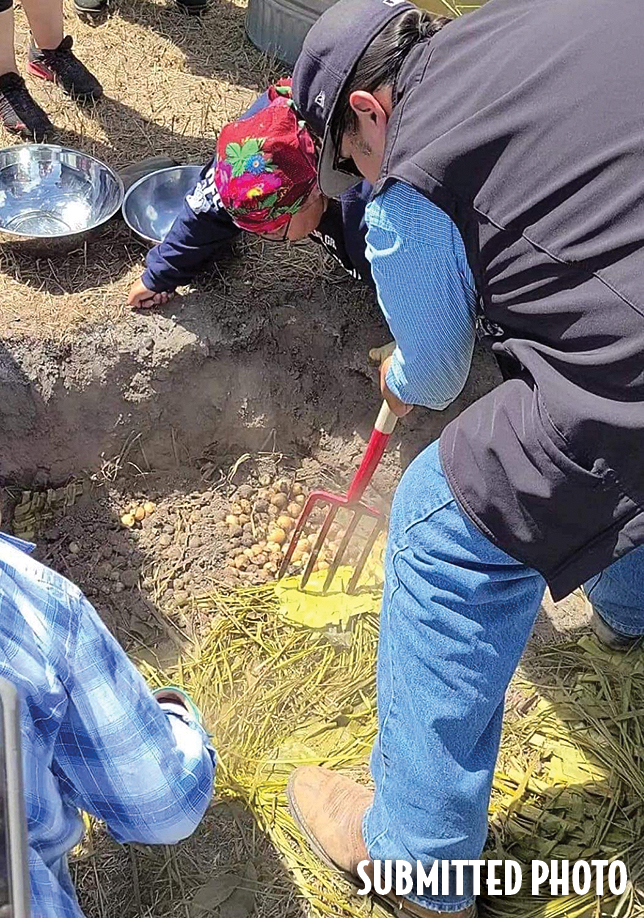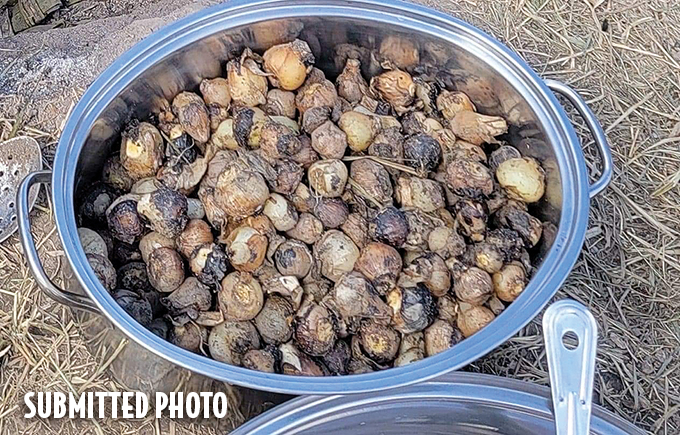Traditional Camas Bake teachings shared to honor loved one

The Traditional Camas Bake began on Saturday evening June 4. The cut and cleaned camas is spread evenly on the greens by Yvette Towersap Tuell and helpers Jordan PlentyHawk and Forest Broncho.
By ROSELYNN YAZZIE
Sho-Ban News
FORT HALL — The Boyer and Pokibro families hosted a Traditional Camas “Pasigo” Bake on June 4 and 5 in honor of the late Merceline “Bel” Pokibro Boyer.
The event began with a prayer and words were shared by Merceline’s husband, Lionel Boyer, who expressed his thanks to those who came to pay respects to his wife. He said she was always good to talk to and fun to be with. They spent a lot of time traveling all over the country and even to Europe.
Rain came down as he spoke and Boyer said the ancestors had to deal with the elements of Mother Nature and Indian people are known as Mother Nature’s children, who must try to protect what she provides.
Tribal elder Zelphia Towersap said it was important for the people to be more supportive in the spiritual way to be more powerful for the young ones and old ones, the land and air that is breathed, the water that is drank. She said when one knows their language they can say their prayers in the language. She said the young people need to know how important spirituality and language are to continue on.

The family watches as the fire burns to begin the baking process of the camas.
As the elders spoke, the firekeepers waited for the fire to burn down to charcoal, which would heat the lava rocks on the bottom of the firepit. Sage brush branches were used for the high heat it produces. The firepit would be used to cook the camas in the ground and was dug deeper than the family normally does, but only due to the large amount of camas collected by the family with an additional donation of camas by Charlene Wahtomy.
Once the firepit was ready the family quickly sprang into action so not to lose any heat.
Dirt and sand were spread evenly upon the lava rocks to help insulate the heat. Water soaked gunny sacks were laid on top of that layer. The pit sizzled as the next layer of various greens were put down, then a weaved tulle mat. The cut and cleaned camas bulbs were spread evenly on the area, followed by another layer of tulle mats, more greens and wet gunny sacks. Another mixture of dirt and sand were spread over the pit with careful attention. Once again, a fire was built on top to cook the camas from top to bottom.
Yvette Towersap Tuell, Merceline’s niece, oversaw the bake and said she often relied upon her aunt to tell her when the camas was done as she was an experienced camas cook. She was a little nervous about not overcooking it. The camas cooked for 20 hours and thankfully none of it burned. A fully cooked camas tastes similar to that of a sweet potato.

The camas is uncovered on Sunday after cooking for 20 hours.
The family was pleased with the honoring; however, they wished more community showed up. They don’t plan to make this an annual event, but will continue to prepare camas they harvest at their homes in the future. They invite the community to reach out individually if they want to learn. Cooking camas traditionally in the way they were taught is hard work and takes much preparation beforehand. The family felt the event was a success as it was time to show their younger generation. For a lot of them it was their first time doing it.
Towersap said she was happy to see Charlene Wahtomy come out as she brought camas and had good words to say. Wahtomy said she came to learn because the last time she cooked camas it burned.
All in all Towersap said everyone that was there wanted to help and were ready and willing to learn. The family was happy for that.
Although the weather was wet and chilly the wind helped keep the fire going and maintained. They were more worried about the wind gust, but fortunately no incidents occurred.

Pan filled with baked camas for the Sunday dinner.
On Sunday, the family hosted a traditional dinner of elk, buffalo and salmon, and served the camas they cooked. They were able to give camas to people to take home.
Towersap said beside sharing food it was nice to reminisce about the times their family spent harvesting camas in Fairfield, Idaho where it grows although it seems like they still have to defend their right to that food today.





